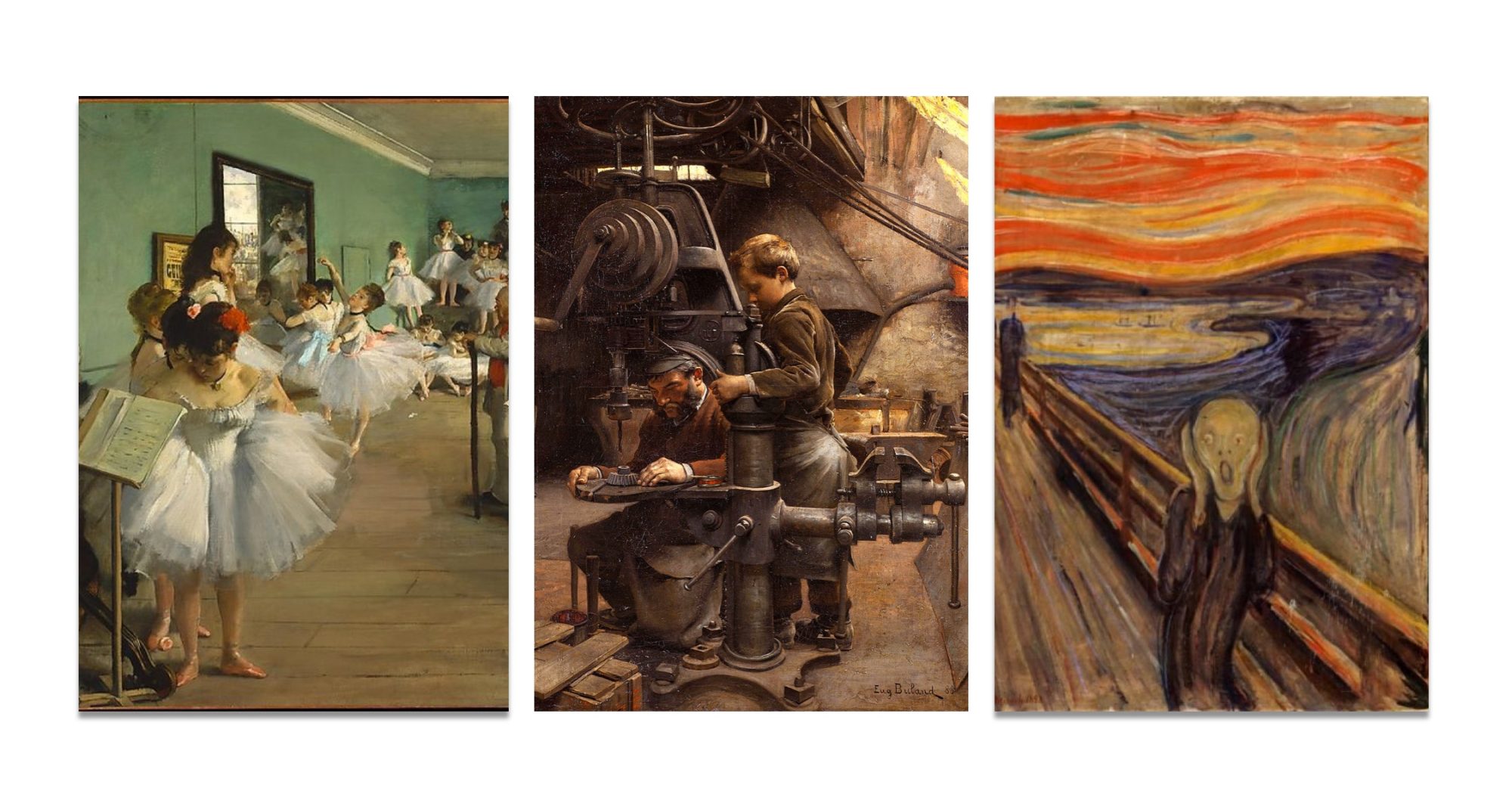This course is organized into three modules. Visit each page to learn more about the assigned materials and projects for each module.
How we appear to others depends upon many cultural, political, economic, and physiological factors. Here, we will focus on the cultivated performance of identity, emotion, and the inner spirit. We will move from the history of clothes and cosmetics to the study of dance and theater, all the while investigating the ways in which humans struggle with the notion of expressing their authentic self to others.
In this unit, we explore various levels of institutional control, particularly in the workplace. Of most interest to this unit is our close observation of bodies in repetition, often repeating such everyday habits as walking across a room, and our critical reflections on how our bodies often obey instinctual, cultural, and anthropological habits. In what ways do our bodies unconsciously follow old habits, and in what ways do we exert agency over our minds and bodies?
In the period from 1700-1914, many revolutionary changes in science, politics, and culture draw increased importance to the concept of “borderlands”–both internal, in terms of identity, and external, in terms of border crossings. In this module, we will explore a variety of borderlands as they concern identity, language, creative expression, and culture. We will work on our own borderlands, in addition to producing critical and creative analyses of the borderlands in the texts we study.
